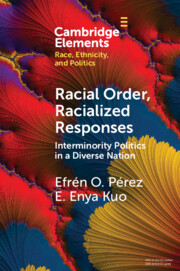A growing body of literature examines how direct or vicarious contact with forms of state surveillance affects political behavior and perceptions of government legitimacy. We develop a new method, Portals, to collect conversations between black residents from highly policed areas in five different U.S. cities between 2016 and 2018. While existing research emphasizes how interactions with the carceral state are alienating and demobilizing, our analysis of these conversations identifies productive ways in which citizens respond to oppressive encounters with police. The political discourses used by Portals participants, we argue, are centered on a logic of “collective autonomy”—given police ignorance, abuses of police authority, and the little political power that residents of highly policed communities have to demand change, many conclude that power is best achieved by strategically distancing from state institutions in the short term while building community power in the long term. Crucially, articulations of collective autonomy transcend the ideological positions of participants and track closely with an ideological tradition in black politics that persists across generations and contexts of state oppression.
